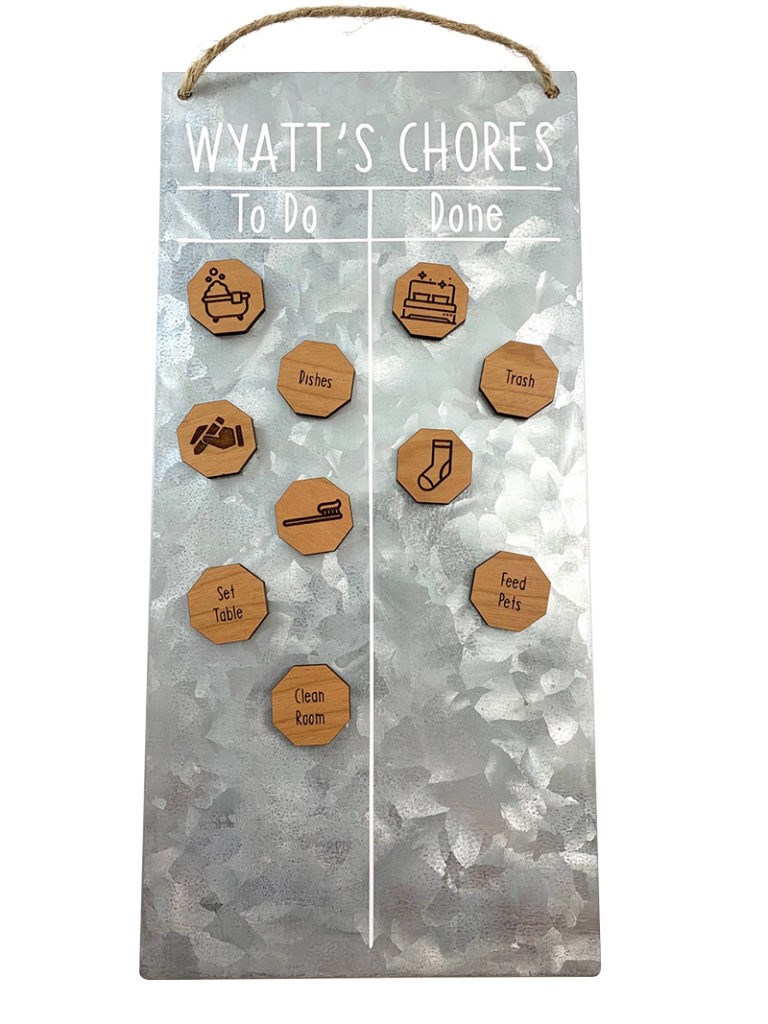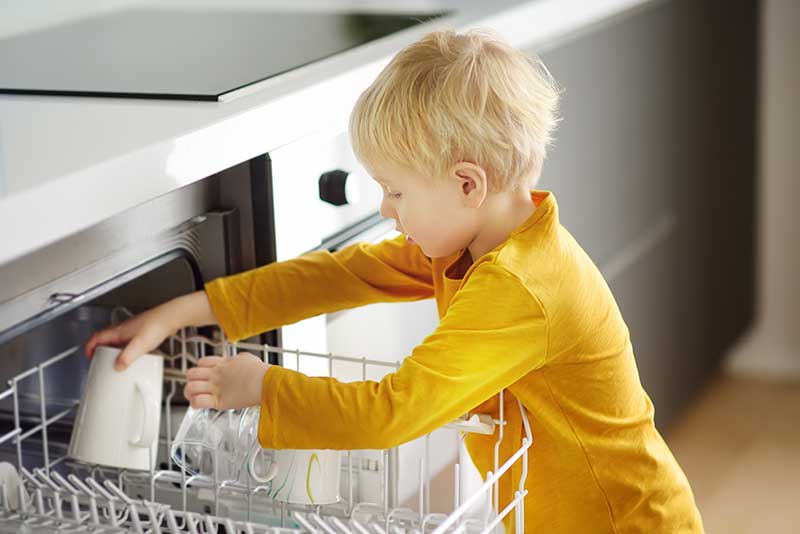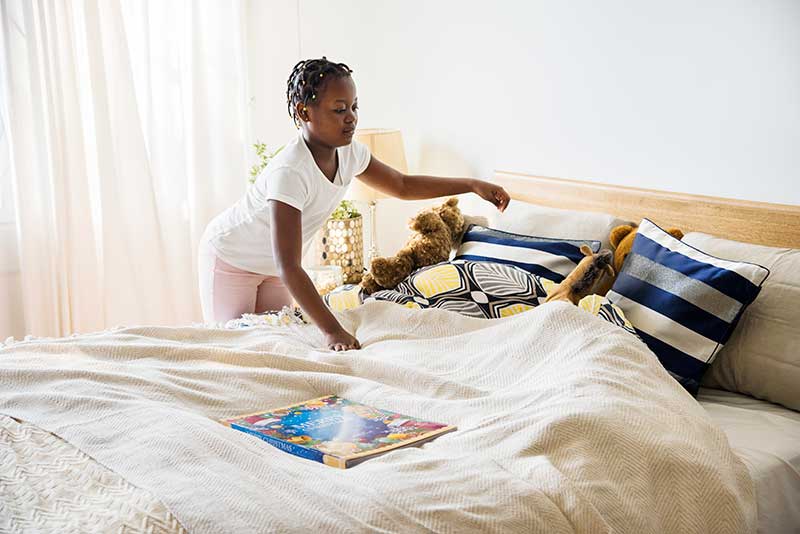Age Appropriate Chores for Kids
Including infographic and chore chart ideas!
One of the more difficult aspects of parenting is doling out household chores. Having children help around the house builds family relationships, teaches managing a schedule, and prepares them for life on their own.
However, deciding when to introduce new responsibilities can be a challenge for parents. Starting from the age of two, children are old enough to take on responsibilities around the house. The keys to managing a child’s chores are proper motivation and age appropriateness.
How to Get Kids Involved
Getting kids involved in household chores can be confusing given that there are so many things around the house to do. Figuring out which things your child can handle requires an assessment of their maturity and motor skills. It’s important that, when introducing any chore, you demonstrate how to complete it step by step.
2-3
In their toddler years, children are still developing their motor skills. They are able to pick up and hold on to objects and walk around. This means that they are ready to handle tasks such as putting away their toys, cleaning up spills, and feeding pets.
Children may require supervision for these activities in order to ensure they complete the tasks in a reasonable amount of time. If your pet eats canned foods, you’ll want to put off having them the pet until they have developed strong motor skills around age six.
4-7
As your child grows, they will not only develop their motor skills, but also strength to lift and use handheld objects. It’s good to introduce a child to sweeping, raking, and using handheld vacuums. They will also no longer be in a crib and should learn to make their bed.
Other things their increased coordination can handle at this age are things like setting and clearing the dinner table, emptying trash cans (use discretion as to which trash cans they are emptying), and getting the mail.
8-10
By age eight, children have developed the patience and cognition to handle more time intensive tasks. In addition, they’ve developed the motor skills to handle larger objects such as vacuums and mop buckets. Introducing your child to vacuuming and mopping is a good idea at this age.
In addition, a child’s ability to follow complex directions at this age allows them to help out with doing the laundry, cooking, and taking the pet for a walk. To ensure that your child is mature enough for these tasks, do them with your child at first, later moving to supervising, and finally allow them to do them on their own.
11+
As your child gets older, they will develop the maturity to do things like handle chemical cleaners and look after younger siblings. At this age, it’s appropriate for your child to clean the bathroom and kitchen. In addition, they should have the skills to wash the windows. Be sure you review the instructions on the bottles and go over the risks of combining cleaning products.
If you are comfortable with your child staying home alone, they may be old enough to handle babysitting their siblings. Be sure to give specific instructions on what to eat and when to put their siblings to bed.
As your child reaches their teenage years, it may be a good time to introduce them to more substantial household tasks like mowing the lawn or helping with home improvement projects. This requires some discretion on the part of the parent to know when a child is ready for these more advanced tasks.
How to Keep Kids Motivated
One hurdle parents come across when assigning chores is keeping children motivated to complete them. Although punishment for non-completion of tasks may be necessary, it won’t provide the motivation for them to do tasks on their own and may be more trouble for parents than it’s worth.
It’s important not to insist on perfection when having your child do chores. Praise them for any work they do, and show them how to do anything they neglected. Positive reinforcement often works better than punishment in motivating children.
Lastly, parents should be consistent in assigning chores. Children should be regularly responsible for a discrete set of tasks. Many parents find that having a chart of routine chores keeps children on a schedule and helps parents keep track of what chores have been completed.
The simplest way to construct a chores chart is to list the chore, the person responsible for it, and when it needs to be done. It’s not a bad idea to include chores that you and any other caregivers will engage in, so your child doesn’t feel singled out for housework.

This custom chore chart was made by LeeMo Designs in Bend, Oregon.
A controversial subject when it comes to chores is payment. Some parents handle children’s allowances by paying their child for completing chores. Most parenting experts say that this is detrimental to a child’s development.
Paying children for chores develops a work ethic that only exists if there is an additional incentive to completing the task at hand. Not only will that prove more expensive as your child ages, but also will not set them up to be responsible for routine tasks on their own as an adult.
Your best bet is to give your child an allowance independent of chores. It’s not a bad idea, however, to offer to pay for unusual chores such as deep cleaning behind the stove or setting up for a garage sale.
Ultimately, deciding which chores a child should be doing is going to require judgments about a child’s motor skills, their attention span, and their maturity. Done right, your child will not only be a dutiful member of the family, but they will learn valuable lessons about responsibility that will last them a lifetime.






